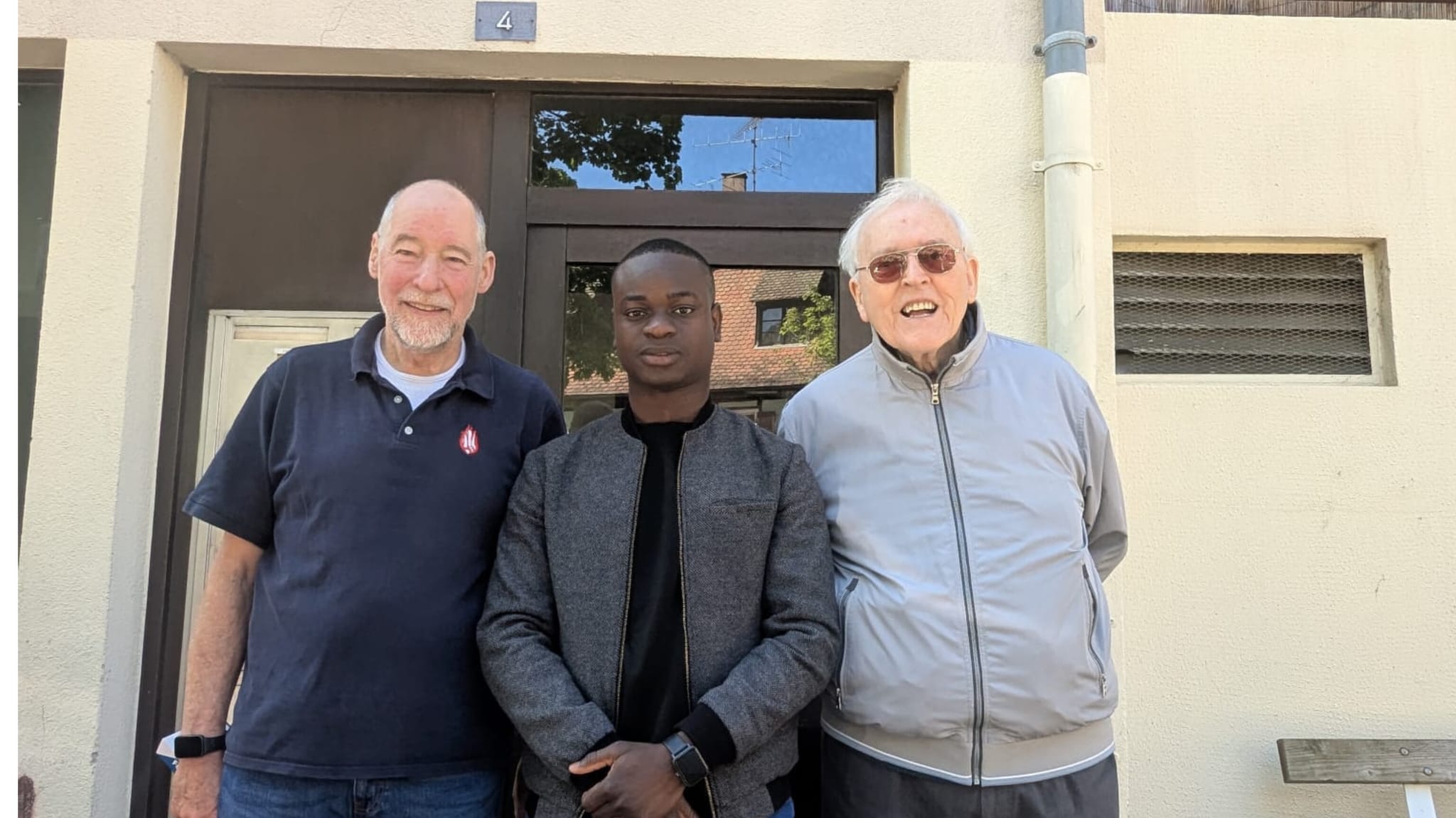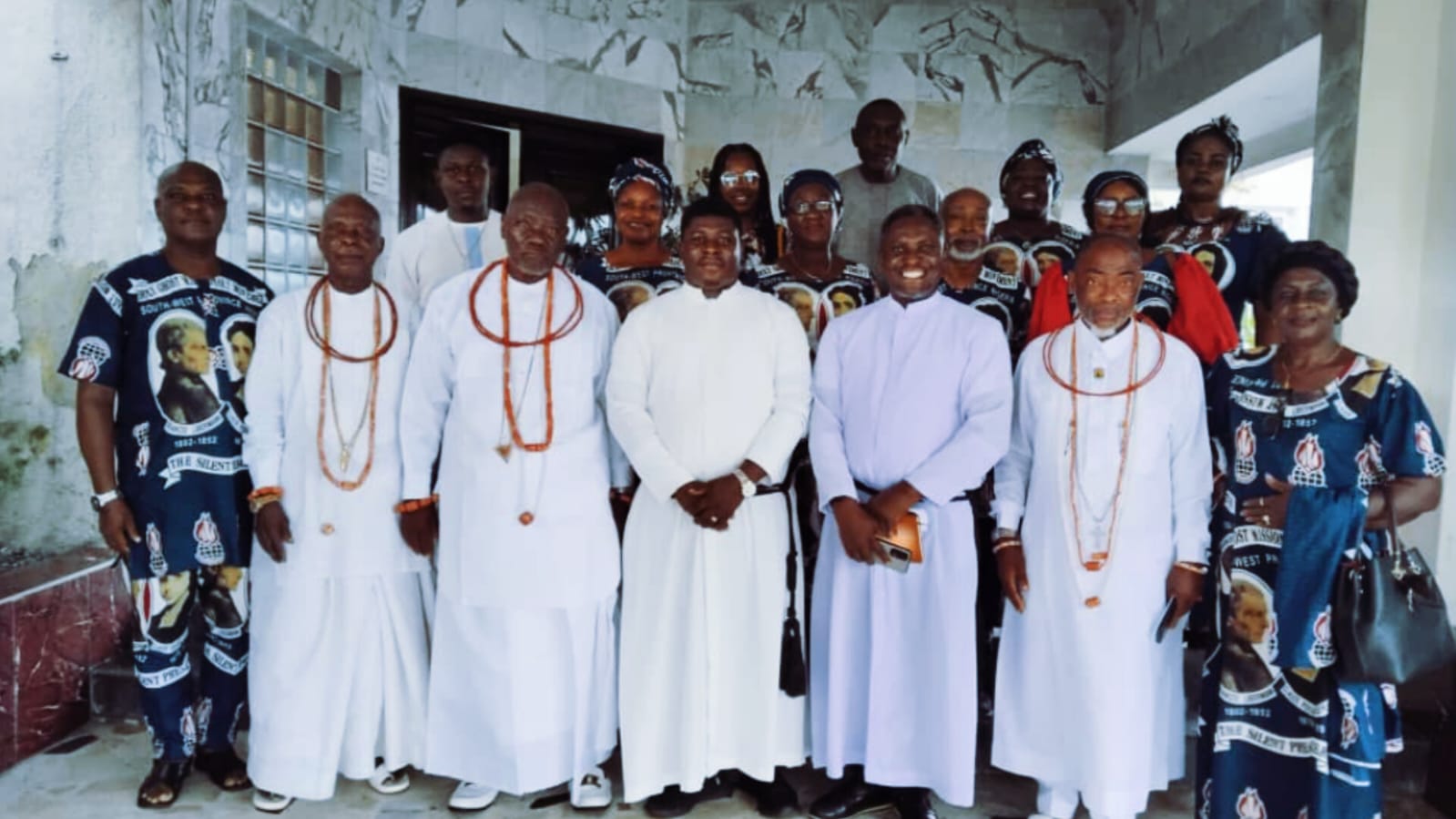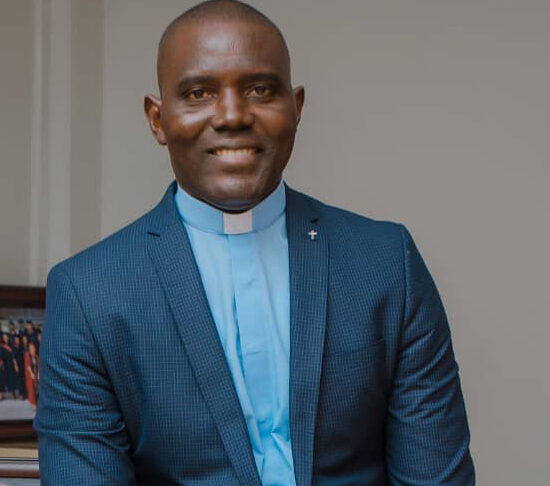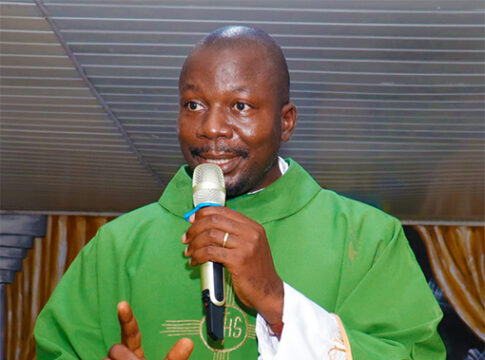AN INTERVIEW WITH
BISHOP M.O. FAGUN,
THE EMERITUS OF EKITI DIOCESE, NIGERIA
SSMT: Your Lordship, we, the Spiritans Sound Media Team on the threshold of Treasures Unveiler Magazine are delighted to be with you today. Please, can you tell us something about yourself?
BISHOP FAGUN: I am Michael Olatunji Fagun. I was born on the 17th of April, 1935 in Akure, Ondo State. I grew up in a society dominated by paganism; however, I was privileged to have been brought up in the Christian faith by my parents. Having felt inspired, I undertook my journey into the priesthood in the seminary of the Society of African Missions even though it seemed like an almost impossible task because, the society did not really encourage the priestly vocation, coupled with the fact that the seminary had a very strict and disciplined system. To the glory of God, I was ordained on July 4th, 1965. Thereon, I went on to further my formal education in the University of Ibadan where I got my first Civil Degree in French and Literature (not Theology). After that, I went for further studies in Canada for my Master’s degree in the same subject, French and Literature, in the University of Toronto. I came back from further a studies in 1971, and in that same year, I was installed the first Auxiliary Bishop of Ondo Diocese. Then in 1972, I was installed the first Bishop of Ekiti Diocese. Finally I retired after serving as a bishop for 37years.
Since my ordination, I have had the privilege to serve God in different capacities, and in this period of service, I have achieved quite a few things. Prior to going for advanced study in Canada, I served as the Director of Education in Ondo Diocese; I was a teacher at St Joseph in Ondo town, then at Annunciation, Ikere-Ekiti. Thereafter, I served as the Chaplain at St Louis, Akure. Upon my return from Canada, I was privileged to translate the French edition of the Jerusalem Bible into Yoruba language in the year 1990. I equally translated both the Sunday and Daily Missal into Yoruba. I have also written some books, all of which can be accessed on my website: www.bishopfagun.org. Since my retirement, I have been invited for retreats all over the country. I praise God that I have been able to help people’s spiritual life in this manner.
SSMT: My Lord, the youths have been complaining incessantly that the church is not doing enough to support them in music? What is your take on this?
BISHOP FAGUN: There is a bit of truth in their outburst, choristers are taken for granted in the Catholic Church. Sadly, this isn’t the case in protestant churches because their service is centred mostly on reading and singing, afterwards, their service ends. But for us Catholics, the core of our service is the Holy Mass (the Blessed Sacrament, the essence of adoration and Sunday service) and as such, the choir is just a part of the celebration. In fact, the Holy Mass can be celebrated without singing. Owing to this, the Church does not make so much fuss about the choir, which is quite unbecoming. But today, considering the enculturation of the liturgy, one would notice that our people are overly musically inclined. A kid would dance and clap to any song to the point of modifying it to suit his or her own kind of music.
SSMT: What concrete effort is the church making to promote music in the church?
BISHOP FAGUN: Notably, Music has been taken seriously in the church lately. Hence, the choir is encouraged to sing to their full capacity. Interestingly, during the emergence of enculturation of the Mass in Nigeria, years back, there was a priest by the name, Rev. Fr. Sanusi, who composed “Tewo gbebo wa”, a popular song still sung till date. In the same vein, other talented priests and lay people have brought a lot of enculturated music into the Church. Catholic choristers today are flourishing as a result of such novelty. Candidly speaking, there is a Nigerian Catholic Bishop who has such an infectious passion for music, in the person of Most Rev. Emmanuel Adetoyese Badejo, the Bishop of Oyo Diocese. Indeed, no youth in his diocese has any reasons whatsoever to complain that he/she is not motivated music wise. I hereby encourage the Spiritans Sound Outreach to continue its pursuit of gospel music production.
SSMT: Where do you think that the lay faithful should come in, in church music?
BISHOP FAGUN: Thanks for that question. While the clergy should make concerted effort to promote religious music production, it should not be left to them alone to grapple with just like in the past; lay people too can become leaders in music production for the church. Nonetheless, the lyrics of the music should be taken into considerations to ensure they are not inimical to the Catholic faith. Catholic liturgical layouts and doctrines must be adhered to. The theological teaching must be clear. Youths who are interested in music as Spiritans Sound Outreach is spurring them on, should be unequivocally encouraged by other people. However, the problem lies in funding. Many youths may not show interest in a situation where finance is lacking.
SSMT: My Lord, are you of the opinion that the youths should be financially motivated so as to encourage them to be musical oriented?
BISHOP FAGUN: The truth is that it is quite unfortunate, priests (myself inclusive) also mistakenly presume that since we do not work for money, others are hitherto expected to follow suit. Remunerations that can keep the youth motivated and encouraged, as choir members, should be encouraged because they are also ministers in God’s vineyard. I realized when I was still in the ministry, when a group in the church come for meetings and the likes, they would come once or twice and so long there is no incentive, they might not show up the umpteenth time. So, this issue should be looked into and addressed. However, the youth should equally be taught not to rely hugely on financial gains for the things they do in the church. They should be able to show magnanimity with their service to the God and the people.
SSMT: So, my Lord, what advice do you have for the youth in their life’s pursuits?
BISHOP FAGUN: As I usually say, one of the three values majority of humans consider quite a lot I, money (which is the least of them all in the hierarchy of importance). Everybody wants money, no doubt, this is good. The church notwithstanding, emphasises that money is the vehicle of evangelisation. This is absolutely true but money has a limit it can go if not properly handled. St James tells us that the love of money is the root of all evil. The implication of this assertion simply connotes that, money is hereby desired to the detriment of oneself and others. Therefore, our youth should be taught that money is meant to be used and not for accumulation, meaning that, when one has enough financial wherewithal to sustain life, there is really no need to stash away millions in money, robs or deprives other people of the basic needs of life. The major reason poverty abounds in the country, is largely because wealth is not evenly circulated and distributed. The youth need to show contentment in whatever they have/need in life and assist others with the spare they have since being useful in the society with financial resources, helps to enshrine benefactors in the minds of the masses, which further helps keep their memory evergreen in the annals of posterity.
SSMT: Should Christians go into secular music?
BISHOP FAGUN: Music as a talent is a sort of vocation. People discover they are musically talented but their production depends on their background, either in the world or in the Church. What are secular and religious music? Secular music is any song that is not religiously inclined and a religious music on the other hand, is any song which has a purely religious orientation. There is nothing wrong with both. So, as a musician who has a religious background, the desire to compose religious songs just come naturally as he or she gets inspired. A good example is, when one is at ease and finds himself just singing effortlessly. This is how songs are composed. They should be channeled in the religious aspect of life. If the religious life is reposed in an individual, it will reflect in his music but if the world takes over and if immorality is dominant at that point, immoral songs will definitely be birthed. Hence, out of the abundance of the heart the mouth speaks.
SSMT: My Lord, what else do you think the church needs to do to promote religious or gospel music?
BISHOP FAGUN: The duty of the Church is then, to make Christians grow with a religious mentality so that without any formal preparations, religious/adoration songs will spring from their heart in worship and praise of God, even in the comfort of their homes. Christian youth should be imbued with religious ideas so that it will reflect in their music. Good examples are the cultural musicians in those days who were so much rooted and embedded in folk lores of the which influenced their genre of music. People enjoy these songs and dance to them. Without inspiration from folk lores, these set of musicians would not have been able to put their ideas into music. Similarly, a gospel musician who has a deep knowledge of the gospel will not stray in his music. Catholic youths, then, should imbibe Christian values. This will definitely resonate in their music either in the choir or if they choose to go solo. As in the case of Mozart, J. S. Bach, the German composers, who extolled God with their songs, this was possible because they were entrenched and indoctrinated in Christian principles. For instance, the Alleluia chorus when it was composed, was not intended for the church but the song is now popularly sung in churches because the song glorifies God. I congratulate the Spiritans Sound Outreach and promise to the best of my ability to help bring these ideas to the knowledge of fellow Bishops.
SSMT: Thank you my Lord, we are immensely grateful for this awesome exposition into this wealth of knowledge.
BISHOP FAGUN: You are welcome. I give you my blessings.













Leave a comment